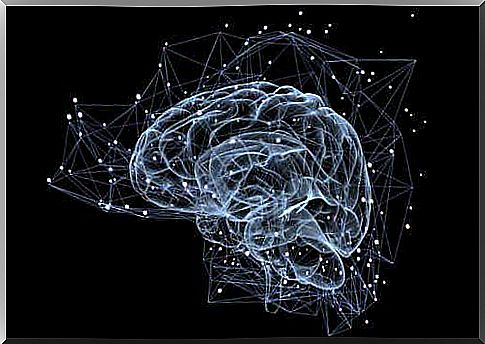How Are Chronic Stress And Depression Related?

Chronic stress and depression are clearly linked. These two difficulties have one hormone in common. It is indeed a small peptide that causes a whole series of changes in the brain when we go through a stressful time.
Certain factors, such as constant worry and lack of physical and mental rest, lead us to these kinds of weary states. This highlights a particularly striking element. Our brain has incredible plasticity.
What surrounds us, how we interpret it, what we feel and what obsesses us to the point of making us lose sleep, in turn generates a whole cascade of neurochemical changes. We then stop releasing dopamine.
Little by little, it is discouragement, blockage, lack of vitality and, finally, depression that eventually appear. Uncontrolled stress can lead to depression disorders.
There is no doubt recent studies tell us so and now we will talk about it. However, is there a direct relationship? In other words, can anyone who is going through a period of sustained stress expect to have psychological problems in a few months? The answer is no.
This is where another remarkable element opens. Some people are more resilient than others. Our genetics, added to other variables, place a sort of protective filter so that this psychological wear and tear does not worsen.
Despite this, it should be noted that, as the World Health Organization (WHO) reports, almost 10% of the population suffers from a depressive disorder as a result of a stressful situation. Let’s take a closer look now.

Chronic stress and depression, a relationship orchestrated by a “defenseless” brain
Michio Kaku, the famous American physicist and popularizer of technological science, points out that we have in our heads the most complex product in the universe. Our brain.
These hundred billion neurons connected to each other create their own structure based on what we do every day. So every exercise, every thought, every personal approach and every skill shapes this sensational organ in a unique and exclusive way.
However, not everything we experience or do works in our favor. For example, we live in a society that has completely normalized stress. We are not aware of how it alters this brain architecture.
Thus, studies as enlightening as the one carried out at the University of Pekin, in China, show us that chronic stress is one of the biggest enemies of the brain. Structures such as the hippocampus or the prefrontal cortex even lose volume under the weight of stress.
From there come difficulties in making decisions, concentrating or remembering certain daily information. In addition, another very significant relationship between chronic stress and depression has also been discovered.
The brain’s “me” center is an overactive zone
This is interesting for understanding the link between chronic stress and depression. Thus, there is a group of neurons located in the median prefrontal cortex. This group is critical in identifying the presence of any type of depressive disorder.
It should be noted that this area is known as the “center of the self”. Indeed, this is where the mind thinks of itself so to speak.
It is therefore in this corner of the brain that all our projects and concerns are written. But also the trace of what we have already done, what we should be doing and everything that is related to our representation of the “I”.
So, when we go through a period marked by stress, this area becomes very active. Why ? Because we keep ruminating, worrying and feeding our nervousness.
If we do not deal with this stress properly, it is likely that after three or six months, black thoughts will appear. And, with them, the first signs of depression.
In addition, magnetic resonance imaging has shown that patients with depressive disorders exhibit hyperactivity in this area of the median prefrontal cortex. The ego is then trapped in a labyrinth of suffering and constant worry.

Chronic stress and depression: dopamine is the key
The molecular mechanism by which chronic stress and depression have such an important link lies in a very specific peptide. This is the adrenocorticotropic hormone (CRH). To better understand, just enter the following sequence:
- In states of stress, the brain releases this hormone. This promotes the production of dopamine.
- Then the dopamine reaches the nucleus accumbens. It is a region that governs motivational behavior and the energy that enables us to achieve our daily goals.
- However, if stress is sustained over time, things change. So much so that dopamine is no longer released. So when our brain begins to suffer from a deficiency of this important neurotransmitter, our mental focus loses its motivation. This is when discouragement, bad humor, negativity and apathy appear.
However, as noted above, not all people with chronic stress have depression. Certain genetic factors, even a more resilient attitude, prevent them from falling into this black hole. Despite this, we must not forget that stress generates internal changes that can be harmful to our health.
Finally, a stressful situation should always be punctual, controlled and limited in time. Let’s try not to let it settle in us for too long. Let us try to channel it and use it to our advantage so that it does not take us, at all times, to destinations inhabited by suffering.










